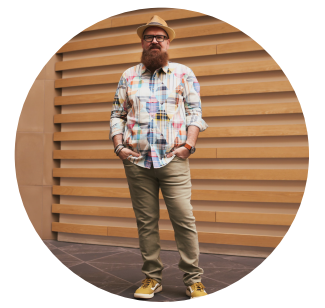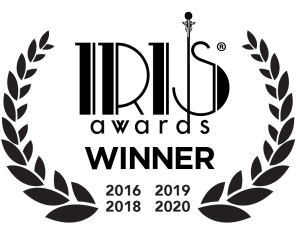The latter part of 2017 saw an endless parade of powerful men exposed for predatory behavior. As we enter the new year, I wanted to share some #MeToo stories that had an impact on me. At one point I thought this wouldn’t be timely any longer, but quickly realized what a weak (and completely inaccurate) reason that is for not joining the conversation. It’s never too late to examine how I’ve played a part in our culture of misogyny and abuse; never too late to explore how I can do better; and never too late to amplify the voices of the women who’ve shared their stories… and the countless more who haven’t.
For a long time, I’ve considered myself an advocate for women. I’m very much for a woman’s right to choose; I cheer when women excel in areas historically dominated by men; I’ve raised my son on female superheroes and discouraged gender-bias in toys, media, occupations, and the like. Hell, I even attended a conference at the White House on women and girls, marched in the Women’s March, and voted for Hillary — twice.
Plus I’m gay, which grants me Automatic Ally status, right? Seeing as I’m not a sexual threat to women, how could I possibly be a misogynist? How could I be part of the problem?
.
The Impact of #MeToo
.
When the #MeToo posts began to flood social media, I felt I was doing my part to support the cause. I read every story I came across; and in each case would try to leave an encouraging comment… or at least a heartfelt heart emoji. I saw several men join in sharing their #MeToo stories, yet prided myself in allowing women’s voices to be the focus. I felt no need to make any sort of public declaration of solidarity, because I figured it was pretty much known I am Team Woman.
Yet just as I was letting myself off the hook, the stories of three women shed light on my thoughts and actions as indeed being part of the problem.
Where Are the Men?
The first post was that of a dear friend pleading to hear from the men she knew. She was asking for their words of support; to not sit by and be spectators as the women in their lives bared their trauma to the world.
I tend to avoid bandwagon-jumping, for fear of coming across as insincere. Consequently, I reassured myself that she knew how I felt without me having to say so.
Power in Naming Names
Another friend took the #MeToo idea to a whole other level by publishing her abusers’ first names. Friends followed suit, adding comment after comment, naming their predators. There were also a few without names; just simple statements like “I didn’t know him,” “I’ve blocked it from memory,” or “I was too young to remember.”
Reading these was a powerful experience. I left a brief comment, but honestly didn’t know what to say — or if I should say anything at all.
Painful Memories
The third voice was that of a family friend who shared her #MeToo stories in detail, citing multiple occurrences between ages 7 and 21. One instance in particular unearthed something I hadn’t thought of in decades; something I’d never thought of in terms of how it might have affected the other person involved.
The memory was of a confused, 16-year-old me at a high school party, trying so hard to make myself straight that I took advantage of a girl and a situation awash in chaos and cheap beer. I felt ashamed as the details came back to me — and shame that the girl’s name initially did not.
My friend’s post caused me to consider that the girl from my memory might be sharing a #MeToo story as well. A story that was my fault.
. . . . . . . . . . . . . . . . . . . . . . . . . . .
I was overwhelmed by the power of these three women’s words. The power from deeply personal revelations, laying bare interrupted childhoods and careers; the power of coming out of the dark to speak name after name after name; power shown by continuing to expect the best and demand more from the men in their families and communities.
These voices mixed in with endless others; from long, heart-wrenching declarations to those simply stating #MeToo. I felt the bravery and anger and strength and loss pour off of these women, dragging me out of my complacent observer status.
.
Part of the Problem. Part of the Solution?
.
Even as a gay man, I have contributed to our culture of misogyny, mistreatment, and disrespect being played out in the news and social media. Because it’s not only physical/sexual interactions with women that are problematic.
It’s also the times I’ve joked (or laughed at jokes, or allowed jokes to go unconfronted) at the expense of a woman’s appearance or biology — a not uncommon habit among gay men. It’s all the times I’ve appropriated a woman’s experience (particularly women of color) — another frequent misstep among many in my community. And while gay men have certainly faced their own discrimination and abuse, we can still in many situations re-closet our sexuality if we so choose. And when it serves us, we can fall back on our male privilege just as easily as straight men — another way that allows the assault on women to go unchecked. By giving myself a pass, I’ve done nothing to help (and by default did harm to) the women in my life and in our society.
In the same way that racism is upon white people to remedy, it’s on men to stop the cycle of mistreatment and disrespect of women — and this unequivocally applies to gay men. Rape is about power, not sex. Safety isn’t just a lack of sexual assault. That’s an insulting and dangerously low bar.
. . . . . . . . . . . . . . . . . . . . . . . . . . .
From Three Stories, Three Takeaways
.
I want to assure the women in my life that I stand with them. Women who are friends, family, colleagues, readers — I hear you, believe you, support you, and recommit to advocating for you. I’ll do this any way I can, in whatever way I have the ability, talent, or opportunity to do so. I understand this will often consist of just listening.
I want my son to see girls and women as worthy of friendship, admiration, and respect. I’m doubling down on my efforts to ensure he won’t regard females in simplified terms: the weaker sex, predetermined caregivers, mere objects of affection. I’ll strive to ingrain in him that throughout his life, girls can and will be strong allies and worthy adversaries, mentors and peers, authority figures and inspirations… and of course kickass superheroes.
I want other men to own up to being part of the problem. If nearly 60% of women in the US have been harassed, abused, or assaulted, then logic follows that a majority of men have harassed, abused, or assaulted — or allowed these things to go unreported. Gay men: we need to examine ourselves and our community, and to dismantle the ways in which we disrespect women and disregard our part in their societal abuse.
The guilt lies not only with rich and powerful men — serial offenders like Weinstein, Cosby, Spacey or Trump — but with everyday men (straight and gay), many who’ve learned and matured, who now regret their words or actions. Putting a voice to that is also powerful, in that it tells the women you know that you are truly in this with them — that whether directly or indirectly, you are part of their story.
. . . . . . . . . . . . . . . . . . . . . . . . . . .
There’s a lot to unpack here, so I appreciate you sticking with me this far. However, none of my words mean a damn thing if I don’t follow through. I plan to revisit this post from time-to-time, to remind myself of the goals I’m listing below. I also give permission to all of the women and girls I know and will know, to tell me when I’m not doing my part to be part of the solution.
.
My Next Steps:
.
• Follow, read, listen to, and learn from women advocating for other women. Use my platforms and influence to amplify the voices and causes of women.
• Contribute my money, talents, and time to support organizations that support women and girls — especially women of color.
• When something offends me or feels corrective or scolding, take it in. What I feel as a man should not be the default in any given situation. Admit with I’ve made mistakes, then recommit to a lifelong process of learning more and doing better.
• Stop making derogatory comments about female anatomy or using misogynistic words. Even in jest.
• Call out uses of “boys will be boys” — whether by an author, friend, or family member. Penis ≠ free pass, special privilege, or excuse for shitty behavior.
• Educate myself on how to best talk to my son about consent, gender equality, and relating to girls in general. Look at how racism plays into this as well, to help him navigate his white male privilege.
• Talk to local educators/administrators about how rape culture and gender inequality is being addressed in our school system. Get involved, make suggestions, or both.
What are your next steps? Share them in the comments.
. . . . . . . . . . . . . . . . . . . . . . . . . . .
Resources & further reading:
.
Donate to Just Be, Inc. / Tarana Burke
Founder of the original #MeToo movement, Burke also founded Just Be Inc., which focuses on the health and well being of young women of color.
#MeToo, #ItWasMe, and the Post-Weinstein Megaphone of Social Media
Fessing up to being part of the problem is only the first step for men in helping repair our abusive culture.
Fighting Misogyny In The Gay Community
Sorry, Gay Guys, I’m Not Here For Your Casual Misogyny
Many queer men have a lot of work to do, when it comes to treating women like whole people — not accessories.
How Men Can Fight Toxic Masculinity and Rape Culture
5 Ways Men Can Help End Sexual Assault
. . . . . . . . . . . . . . . . . . . . . . . . . . . . . . . . . . . . . . . . . . . . . . .
Dedicated to Karin, Jasmine, Paula, and the legion of powerful, brave women I’ve the privilege of knowing.





